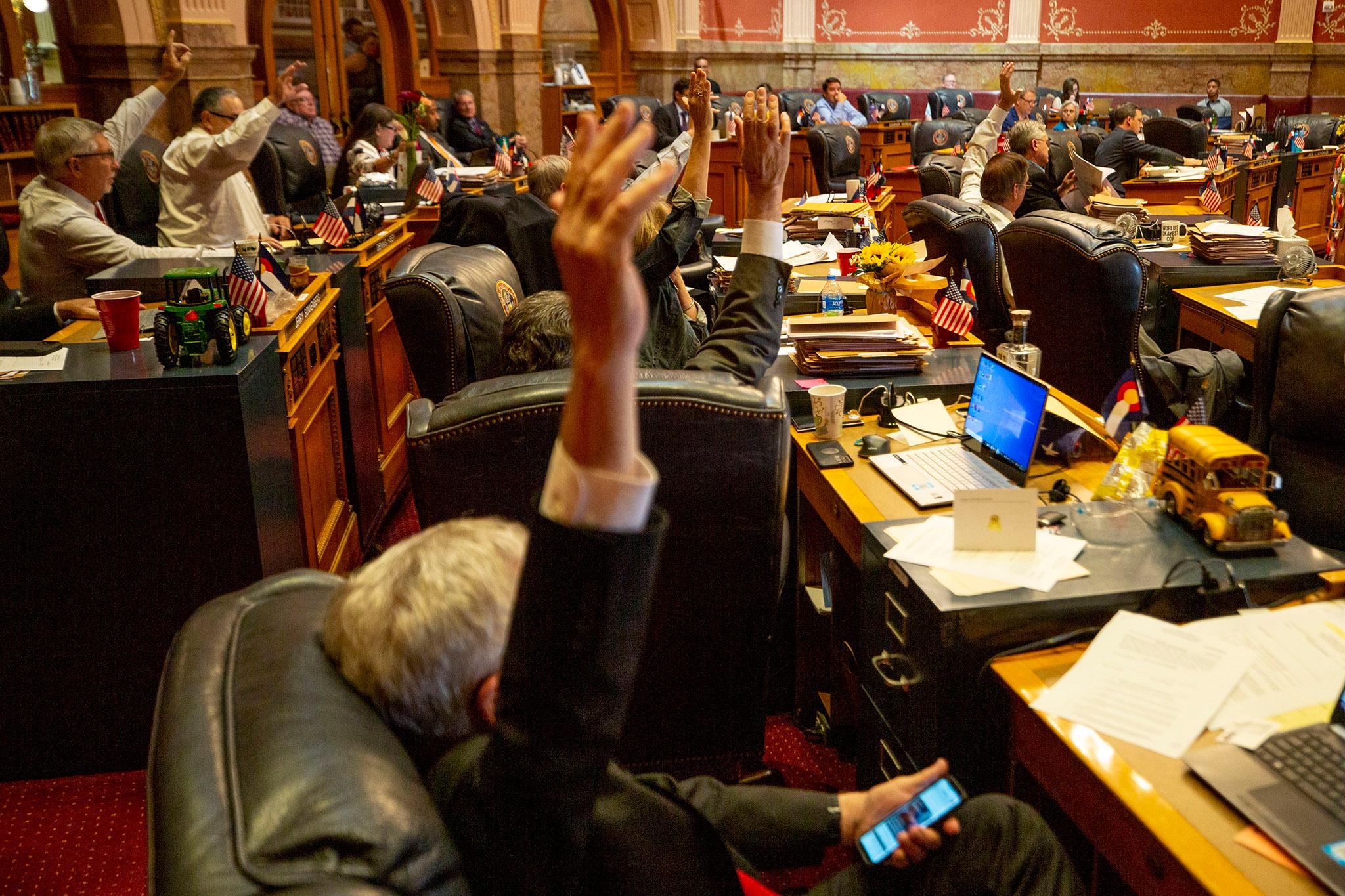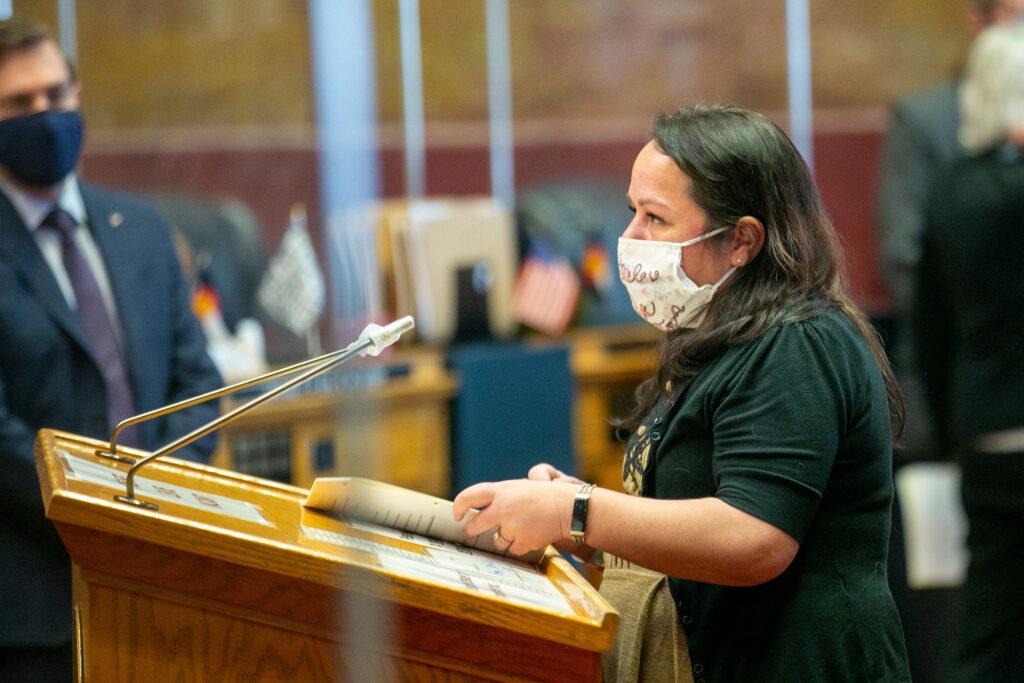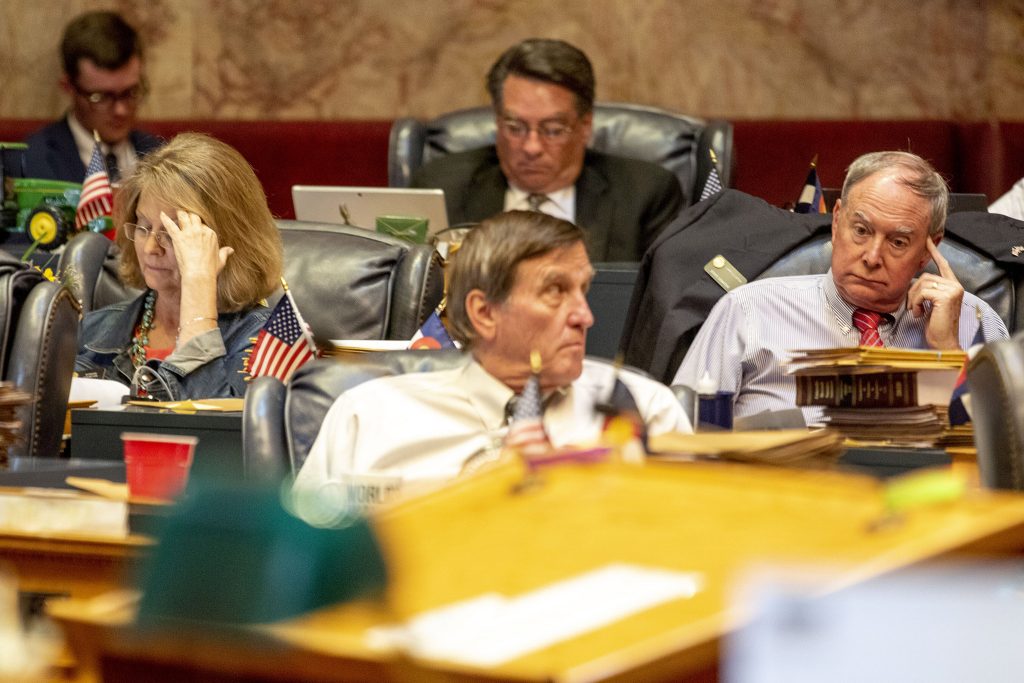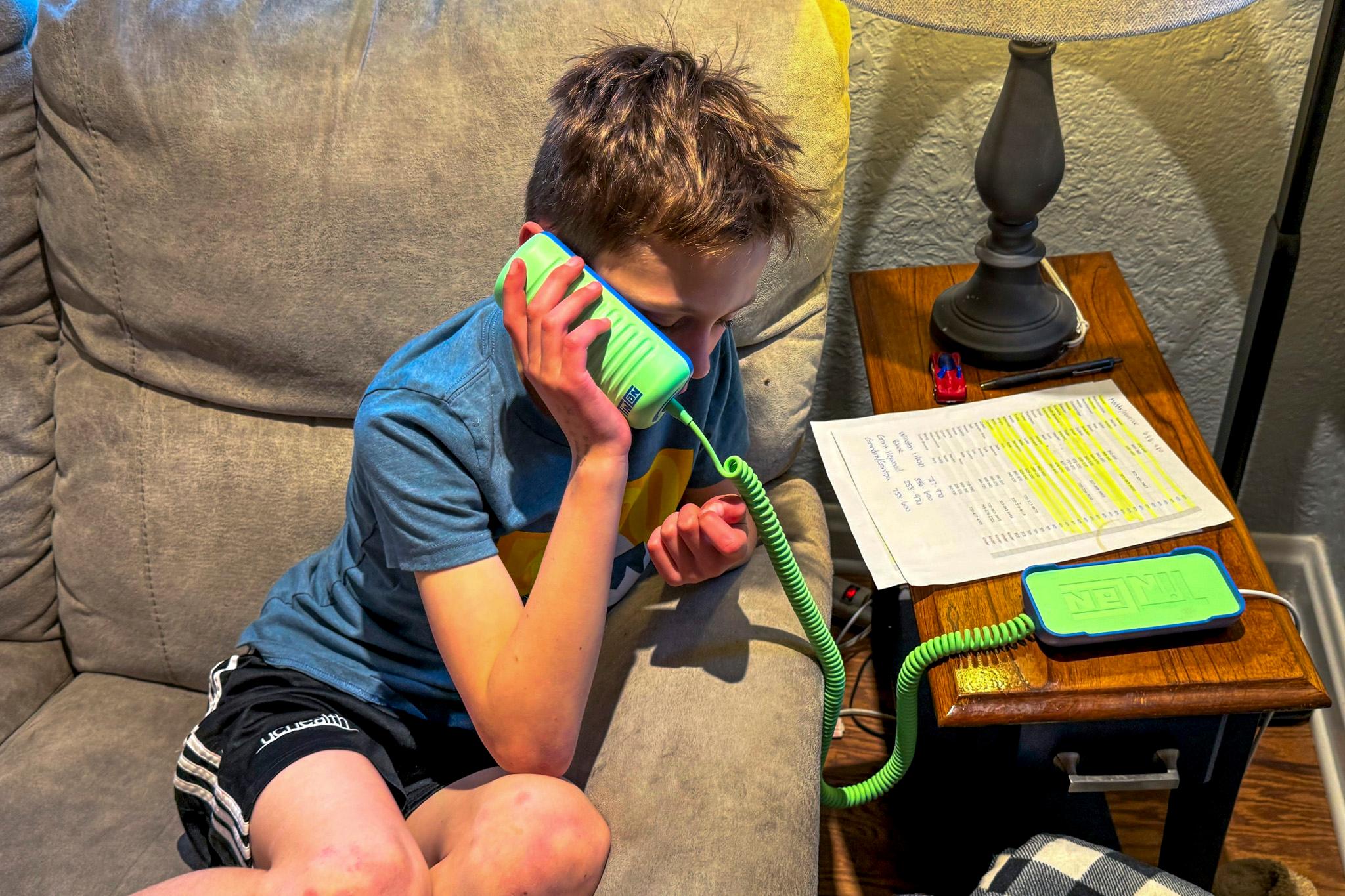
After a veto threat from Gov. Jared Polis and weeks of closed-door negotiations, a climate compromise rocketed through the state Capitol in the final days of the legislative session.
The bill now awaits a signature from the governor.
The deal marks a truce among Colorado Democrats on climate policy. The core of the conflict was Colorado’s strategy to meet aggressive emissions reduction targets approved in 2019. While environmental groups have pushed for direct regulations to hold businesses accountable, Polis has insisted on narrow rules and voluntary agreements.
Those tensions boiled over after progressive lawmakers submitted SB21-200 in March. The bill would have tasked state air regulators with writing rules to bring Colorado in line with its climate goals. Polis promptly threatened to veto it, telling an editorial board it would give unelected officials “near-dictatorial control” of the state’s economy.
A coalition of environmental groups responded with a pressure campaign against a veto. At the same time, Democratic lawmakers pushed the legislation through committees while also negotiating a potential compromise.
In the end, the lawmakers agreed to drop the legislation and add many of its components to another environmental justice bill. That measure, known as HB21-1266, had previously sought to define a “disportionately impacted community” and include those communities in the policy-making process.
A massive amendment expanded the scope of the bill. It added plans to hire an environmental justice ombudsperson within the Colorado Department of Public Health and the Environment. In addition, it calls for a task force to write a plan to promote environmental justice throughout the state by November 2022.
The revised legislation also includes plans to reign in greenhouse gas pollution. Democratic state Sen. Faith Winter, a lead bill sponsor, said the original bill would have required air regulators to lead an economy-wide effort to reduce emissions. Under the compromise, only power plants, oil and gas operations and factories would face new rules to meet specific emissions targets.

“We’re doing enforceability in three of those sectors,” Winter said in a committee hearing Monday.
In the compromise, Winter said lawmakers agreed to drop the same enforcement efforts for the transportation and buildings sector.
Will Toor, the head of the Colorado Energy Office and the governor’s point-person on climate, said other legislation seeks to reduce emissions from those parts of Colorado’s economy. That includes a $5 billion transportation package to expand roads and invest in electric cars and buses. Additional legislation requires large buildings to report annual energy use and encourages a switch from natural gas to electric heat, which can take full advantage of renewable energy.
“The net result of all of these bills and HB-1266 is a comprehensive strategy for achieving our climate goals,” Toor said.
In the same Senate committee hearing, Toor said the final deal limits the possibility of a cap-and-trade program. Some states, like California, have set up systems to put a declining cap on total emissions and allow companies to trade allowances to pollute. Polis has long opposed any similar policy in Colorado.
Toor said the bill could lead to a limited program for “energy-intensive, trade-exposed” industries, but any participation would be voluntary. Under state definitions, those industries include cement makers, steel makers and other heavy manufacturing.
“From our perspective, this does not create any obligation to do cap-and-trade,” Toor said. “We would anticipate, at most, very narrow trading programs.”
Environmental groups praised the compromise while noting Colorado remains off track to meet its climate goals. By the governor’s office’s own estimate, existing policies will only bring the state halfway to its 2030 target, which calls for a 50 percent reduction below 2005 emission levels. An outside analysis from Energy Innovation and RMI, both clean energy thinktanks, estimated actual reductions will only total 3.4 percent below 2005 levels by 2030.
“We will continue to work with the state’s Air Quality Control Commissioners and lawmakers to close the emission reduction gap and preserve a habitable climate for Coloradans,” said Jessica Gelay, the Colorado government affairs manager for Western Resource Advocates, an environmental advocacy group.

The final rush to pass the legislation angered industry groups and Republicans. As the legislative session drew to a close Tuesday, House Minority Leader Hugh McKean, a Republican representing Loveland, joined a filibuster of the bill before a final vote in the Colorado House.
His frustration took particular aim at the process of getting the legislation across the finish line. Since the state Senate amended an already approved House bill, the portions of SB21-200 never went through the standard committee process in the lower chamber.
“Shame on any of us if we accept this degree of a process foul,” McKean said. “You don’t have time to read this. You don’t have time to understand it.”









